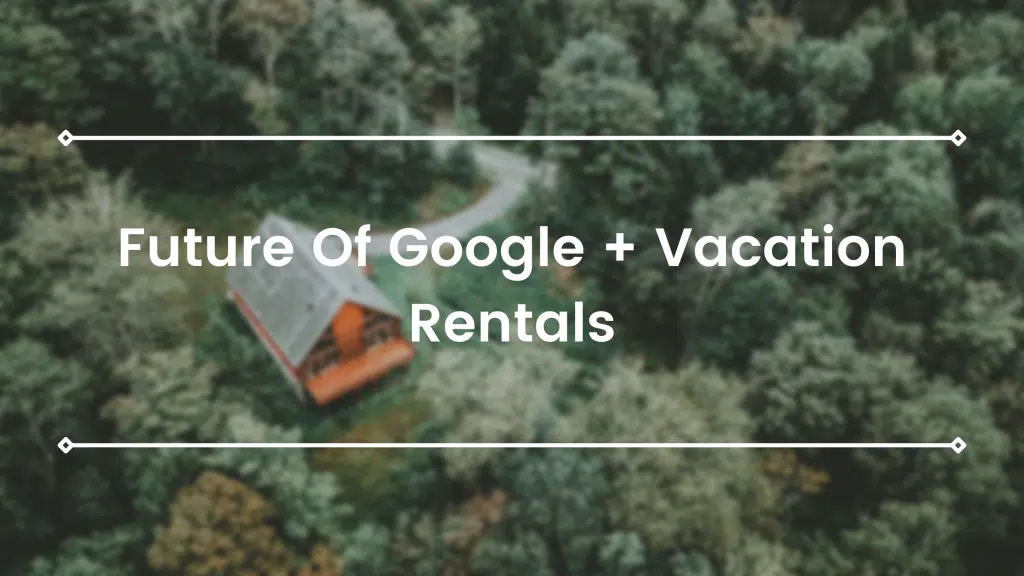In the ever-evolving landscape of the vacation rental industry, change is the only constant. As we step into the future, it's crucial for vacation rental owners and property managers to stay ahead of the curve. The past few years have seen significant shifts in the way people travel and seek accommodation, and these trends are set to reshape the vacation rental business. In this article, we'll explore the exciting trends that will define the future of vacation rentals, with a particular focus on the Airbnb business model.
1. Digital Transformation:
The digital revolution has transformed the vacation rental industry. Online platforms like Airbnb, Vrbo, and Booking.com have made it easier than ever for travelers to find and book vacation rentals. This trend is expected to continue, with more vacation rental businesses adopting advanced property management systems, mobile apps, and online booking platforms. The Airbnb business model, with its user-friendly app and seamless booking process, has set the standard for the industry.
2. Remote Work and Long-Term Stays:
The COVID-19 pandemic accelerated the shift toward remote work, giving rise to the trend of "workcations" and long-term stays. Many travelers now seek vacation rentals that offer a comfortable workspace, high-speed internet, and extended stays. The Airbnb business model has adapted to this trend by introducing features like "Laptop-Friendly Workspaces" and "Monthly Stays," catering to remote workers and digital nomads.
3. Sustainability and Eco-Friendly Practices:
Sustainability is no longer a buzzword; it's a fundamental consideration for travelers. Vacation rental owners are increasingly adopting eco-friendly practices, from using energy-efficient appliances to implementing recycling programs. The Airbnb business model has recognized this shift, promoting sustainable travel experiences and encouraging hosts to adopt eco-friendly practices.
4. Contactless Experiences:
Health and safety concerns have led to the rise of contactless check-ins, smart locks, and enhanced cleaning protocols. The Airbnb business model responded swiftly by implementing its Enhanced Clean program, which sets rigorous cleaning standards for hosts. This trend toward contactless experiences is expected to continue, providing peace of mind for both hosts and guests.
5. Personalization and Guest Experiences:
Travelers are increasingly seeking unique and personalized experiences. Airbnb has excelled in this aspect by offering "Experiences" alongside accommodations. In the future, vacation rental businesses may collaborate with local experts to provide guests with unforgettable experiences that go beyond the rental itself.
6. Regulation and Compliance:
The vacation rental industry is facing increased scrutiny and regulation in many destinations. Airbnb has navigated these challenges by working with governments and implementing measures such as sharing host data with tax authorities. In the future, compliance with local laws and regulations will be crucial for vacation rental businesses to thrive.
7. Data-Driven Decision-Making:
Data analytics will play a pivotal role in the future of vacation rentals. Airbnb has harnessed data to understand traveler preferences and improve the user experience. Vacation rental businesses will need to invest in data analytics to make informed decisions on pricing, marketing, and property management.
8. Diversification and Expansion:
The Airbnb business model has expanded beyond accommodations, offering unique experiences and even restaurant reservations. Vacation rental businesses may explore diversification to enhance their offerings and stay competitive in the market.
9. Community and Trust:
Building trust within the vacation rental community is vital. Airbnb has implemented features like host and guest reviews, identity verification, and secure payment systems to foster trust. Future trends will likely revolve around strengthening the sense of community and trust among hosts and guests.
10. Globalization and New Markets:
The vacation rental industry is increasingly global, with travelers exploring off-the-beaten-path destinations. Airbnb's global reach has set the standard for connecting travelers with unique experiences worldwide. Vacation rental businesses may need to explore new markets and cater to diverse traveler demographics.
In conclusion, the future of vacation rentals is exciting and filled with opportunities. As the industry evolves, vacation rental owners and property managers should keep a close eye on trends and innovations, with the Airbnb business model serving as a source of inspiration. By embracing digital transformation, sustainability, personalization, and trust-building, the vacation rental industry can continue to thrive in the changing world of travel.





Comments